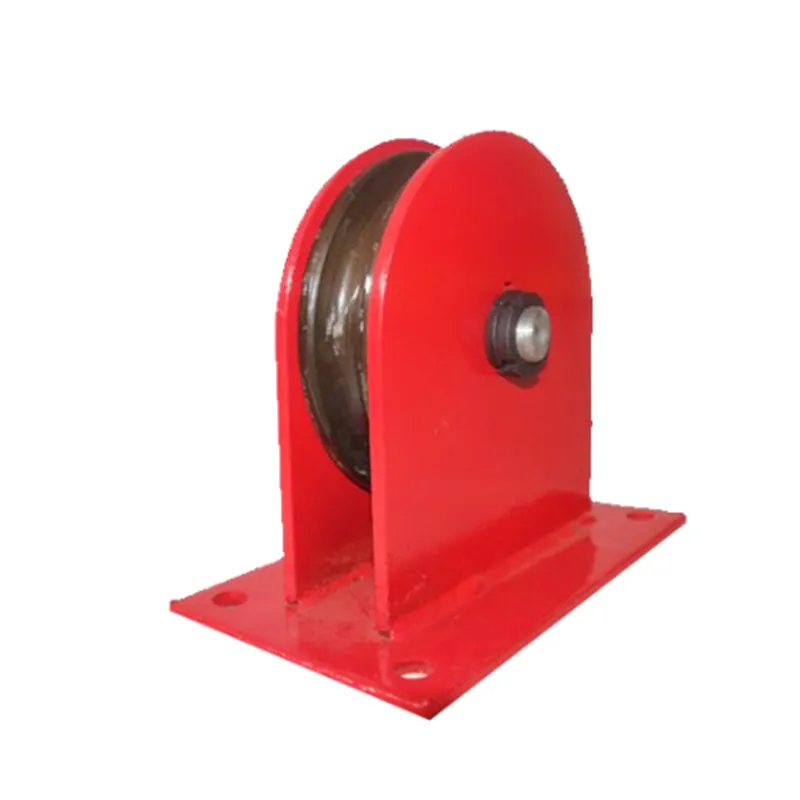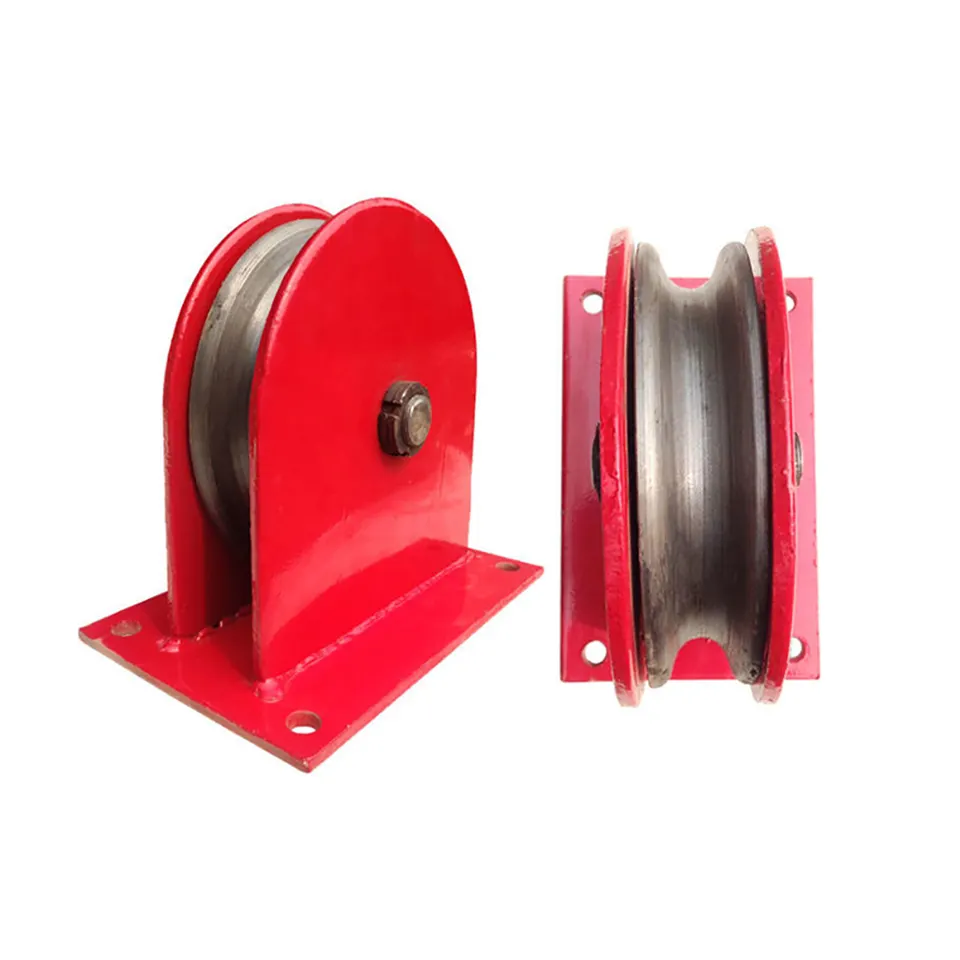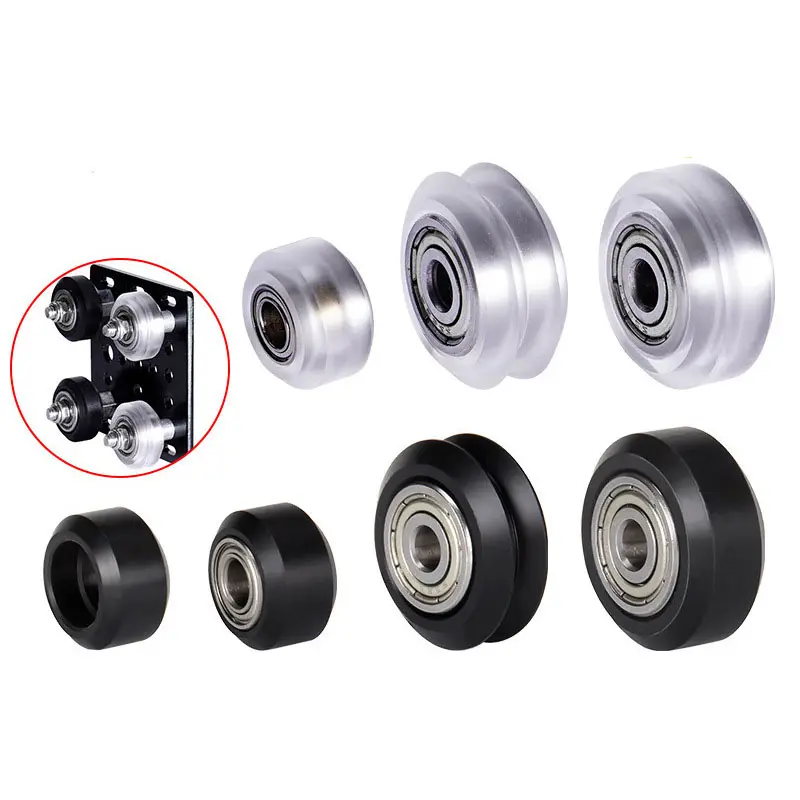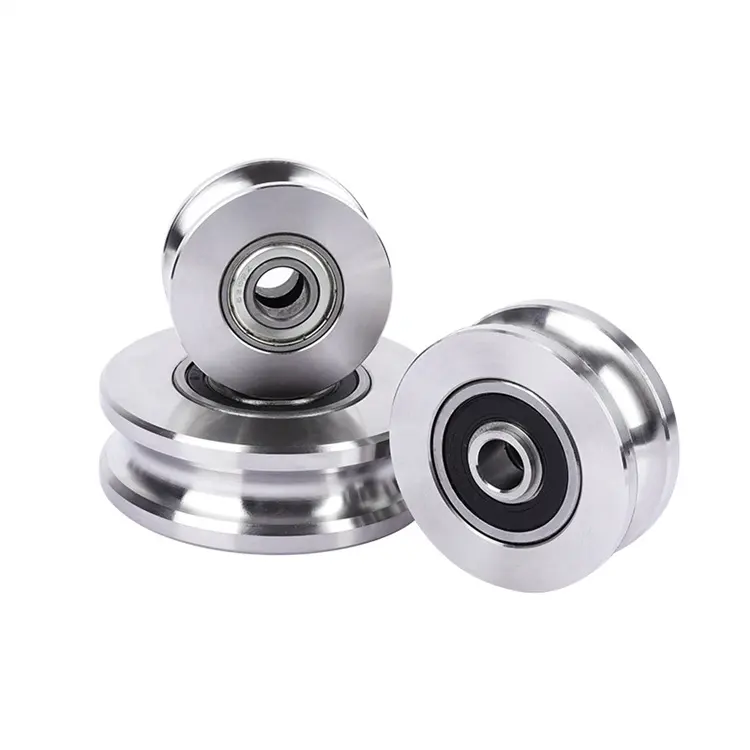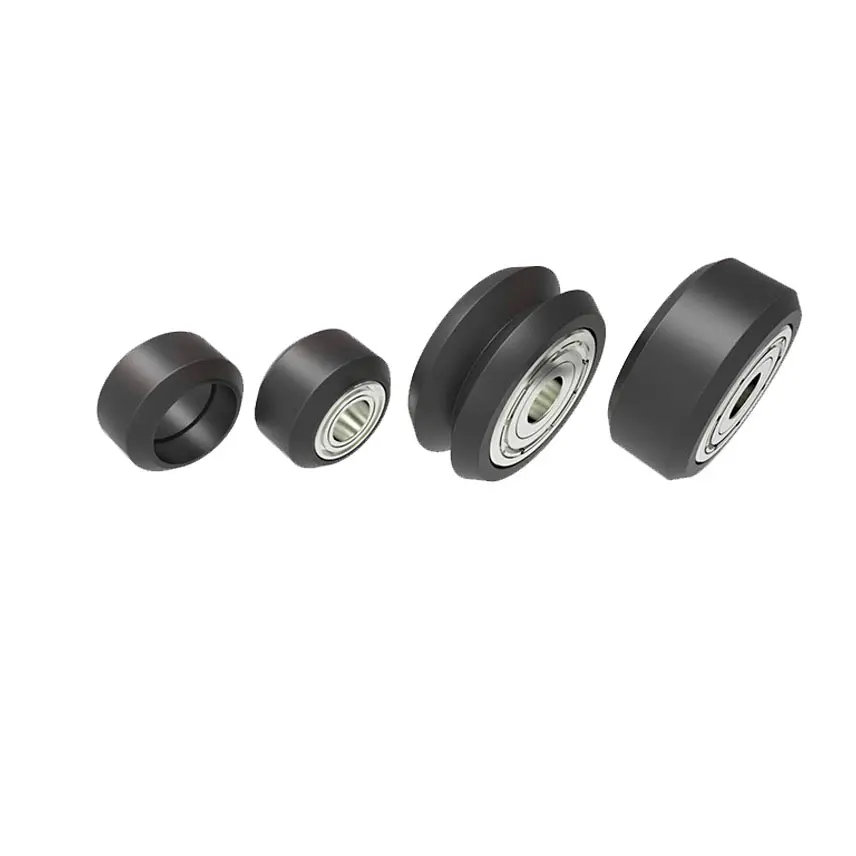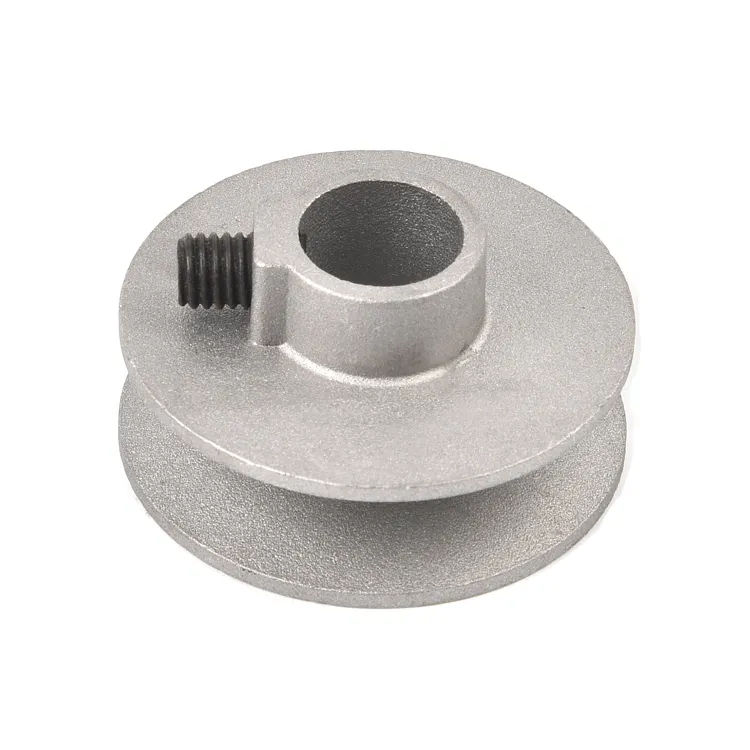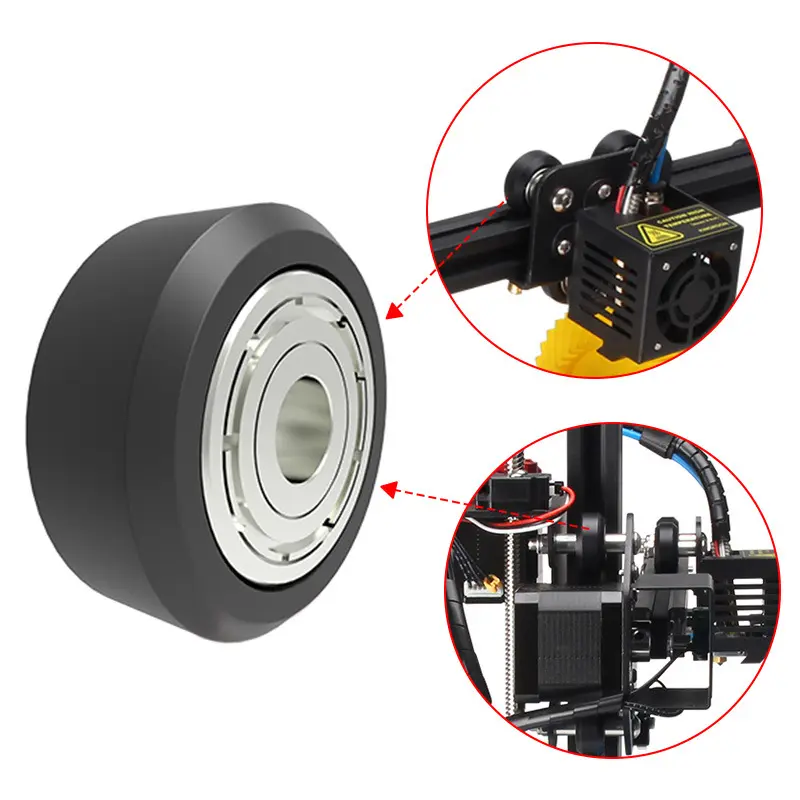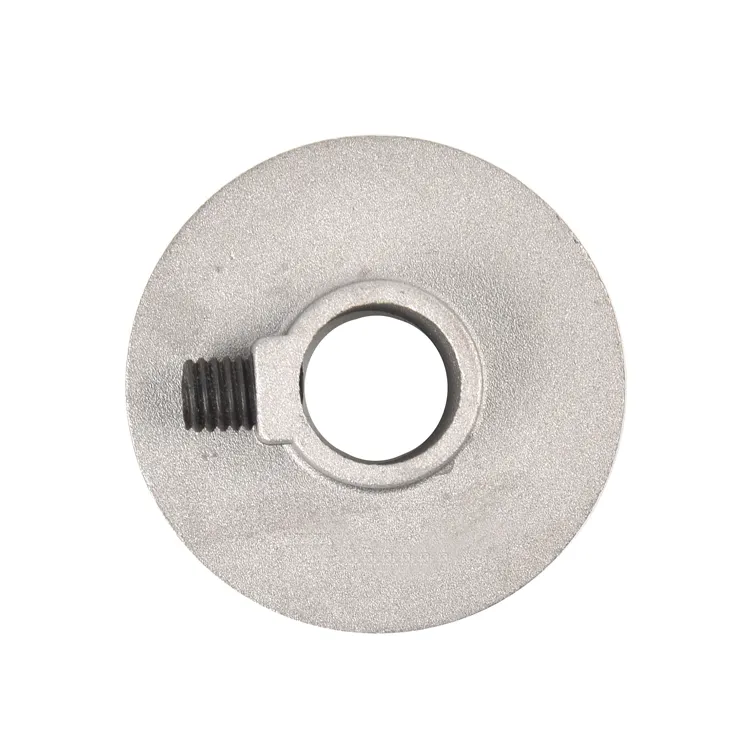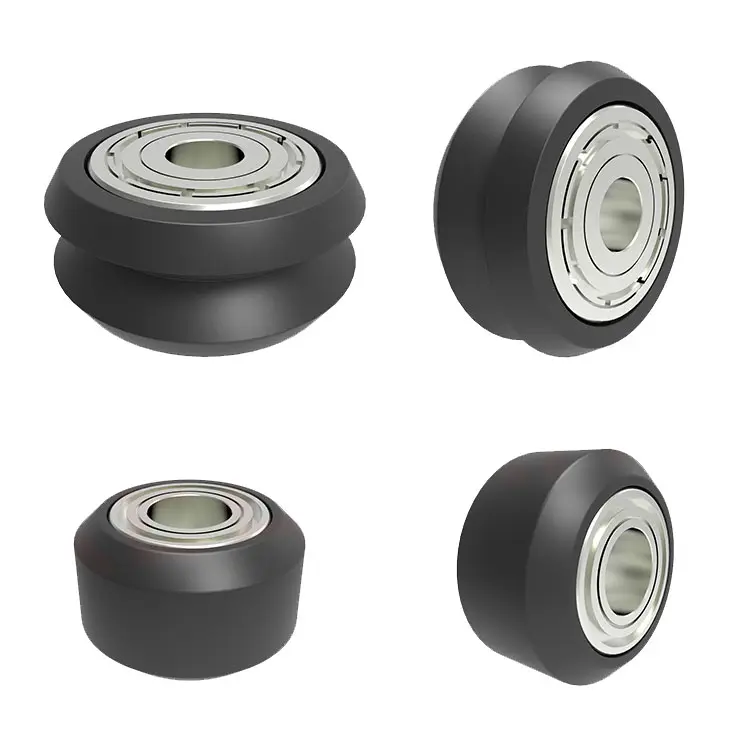Product Description
Product Description
| Product Name | Nylon Pulley |
| Material | Stainless Steel 304/316 |
| Model No | WD6605 |
| Certificate | ISO9001 |
| OEM | Accept |
| Suitable Medium | Pipe line connect of water,oil,steam,gas,air,etc. |
| Color | silver |
| MOQ | 10 PC |
| Term of Payment | 30%TT Deposit, the balance is paid before shipping the goods |
| Package | Plastic Bags——-Paper Boxes——-Cartons——-Plywood Cases |
| Delivery Time | 15-30 Days According To Order QTY |
| Shipment Port | HangZhou, ZheJiang |
| Our Advantage |
Competitive price and good after-sale service Can do OEM products Print logo requested on Quantity first, Customer upmost ! |
Detailed Photos
1.Triangular stable design, high tension, safe and firm use.
2.Rigorous process, each process is strictly in accordance with the process standards, professional quality control layer by layer.
3.The shell and nylon wheel are fixed by riveting process, which is not easy to slip, durable, and safer to use.
4.The surface is highly precision mirror polishing treatment, with higher precision, brightness and polishing degree, and the reflection is clearly visible, which can not only effectively prevent rust and corrosion, but also show high-end atmosphere
Packaging & Shipping
Certifications
Company Profile
FAQ
Q1: We are interested in your products?
A1: In order to recommend you suitable products, please provide detail information, like size, material, pressure, model.
Q2: Is the requirement for MOQ?
A2. Generally speaking, it depends on your order.
Q3: Payment
A3: Mainly T/T, Western Union & PayPal are applicable for us. Payment Term: 30% prepayment, 70% balance paid before shipping or against copy of BL.
Q4: Can you manufacture different standards valves according to customer requirements?
A4: Yes. We can manufacture API,DIN,GOST,JIS standards for different pressure & temperature & size according to different needs.
Q5: Do you provide samples ?
A5: Yes, we can provide samples.
Q6:How do I receive the goods?
A6:We have professional transport agents, which can deliver goods to various ports, FOB, CIF, DHL, Federal Express, etc. Please provide detailed address, we can also provide door-to-door service for you.
If you want to know more about our products, please contact freely. We will patiently answer your all questions.
/* January 22, 2571 19:08:37 */!function(){function s(e,r){var a,o={};try{e&&e.split(“,”).forEach(function(e,t){e&&(a=e.match(/(.*?):(.*)$/))&&1
| Transport Package: | Carton + Wooden Pallet |
|---|---|
| Specification: | Customized |
| Trademark: | Customized |
| Samples: |
US$ 0/Piece
1 Piece(Min.Order) | Order Sample |
|---|
| Customization: |
Available
| Customized Request |
|---|
.shipping-cost-tm .tm-status-off{background: none;padding:0;color: #1470cc}
|
Shipping Cost:
Estimated freight per unit. |
about shipping cost and estimated delivery time. |
|---|
| Payment Method: |
|
|---|---|
|
Initial Payment Full Payment |
| Currency: | US$ |
|---|
| Return&refunds: | You can apply for a refund up to 30 days after receipt of the products. |
|---|
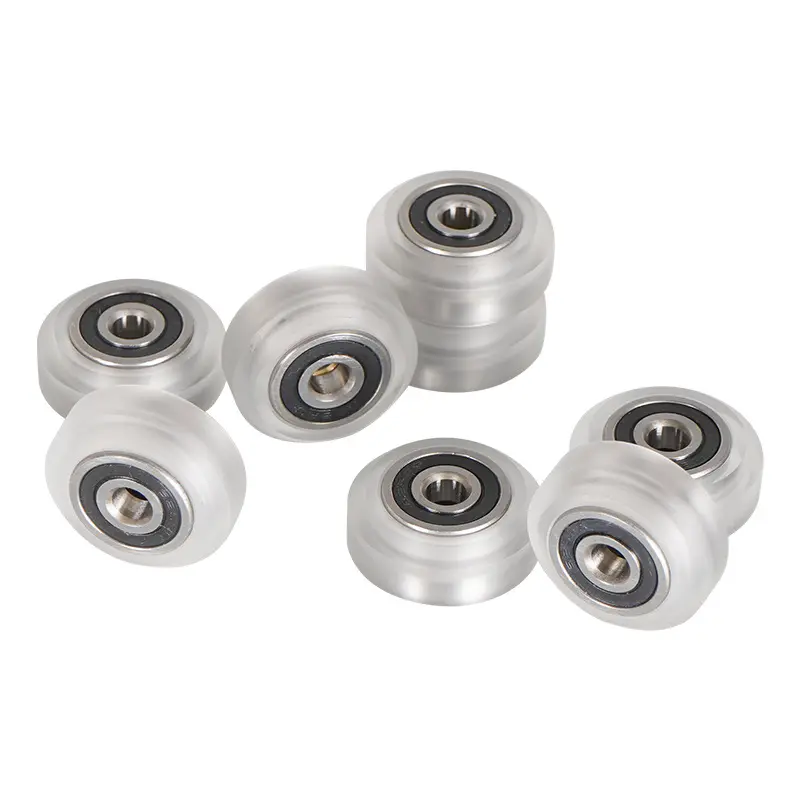
Can fixed pulleys be integrated into existing systems for performance enhancements?
Yes, fixed pulleys can be integrated into existing systems to enhance performance and achieve specific objectives. The integration of fixed pulleys can bring several benefits depending on the requirements of the system. Here are some ways fixed pulleys can be integrated into existing systems for performance enhancements:
- Mechanical Advantage: One of the primary reasons for integrating fixed pulleys is to increase the mechanical advantage of the system. By introducing fixed pulleys or modifying the existing pulley configuration, it is possible to achieve a higher force multiplication or redirection. This can be beneficial when dealing with heavy loads or tasks that require significant force application.
- Force Distribution: Integrating fixed pulleys can also help distribute forces more evenly within a system. By introducing additional pulleys, the load can be divided into multiple segments, reducing the strain on individual components and increasing overall system stability. This is particularly useful in applications where load balance and equal distribution of forces are critical.
- Directional Change: Fixed pulleys can be integrated to change the direction of the force or movement within a system. By adding fixed pulleys at strategic locations, it is possible to redirect the path of the rope or cable, allowing for more efficient and practical routing. This can help optimize the layout of the system and reduce friction or interference with other system components.
- System Flexibility: Integrating fixed pulleys can enhance the flexibility and versatility of an existing system. By introducing pulleys at specific points, it becomes easier to adjust the position or orientation of the load, making it more adaptable to different tasks or changing requirements. This flexibility can improve efficiency, reduce downtime, and allow for more dynamic operations.
- Load Handling: Fixed pulleys can also improve load handling capabilities within an existing system. By integrating pulleys with features such as swivels or ball bearings, the movement of the load can be smoother, reducing friction and wear on the system. This can enhance overall performance, reduce energy consumption, and extend the lifespan of the equipment.
- System Integration: Fixed pulleys can be integrated into existing systems by retrofitting or modifying the equipment. This can involve installing additional pulleys, replacing existing pulleys with higher-capacity or more efficient ones, or reconfiguring the pulley arrangement to better suit the desired objectives. System integration may require careful planning, engineering analysis, and expertise to ensure compatibility and optimal performance.
It is important to note that when integrating fixed pulleys into existing systems, considerations should be given to factors such as load capacity, space constraints, compatibility with other system components, and safety requirements. Consulting with experts, such as engineers or equipment manufacturers, is advisable to assess the feasibility and potential benefits of integrating fixed pulleys into an existing system and to ensure proper design, installation, and operation.
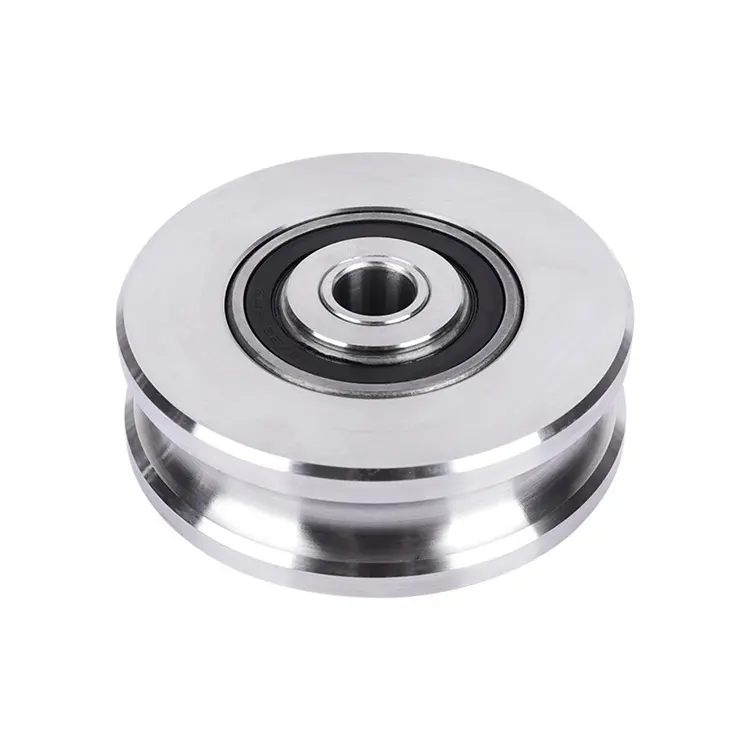
Can fixed pulleys be used in both industrial and DIY applications?
Yes, fixed pulleys can be used in both industrial and DIY applications. Here’s a detailed explanation of how fixed pulleys are versatile and suitable for various contexts:
Fixed pulleys are simple machines that offer mechanical advantage and facilitate the movement and lifting of objects. Their design and functionality make them applicable in a wide range of scenarios, including both industrial and DIY (do-it-yourself) settings. The following points highlight the versatility of fixed pulleys:
- Industrial Applications: Fixed pulleys find extensive use in industrial settings. They are commonly employed in manufacturing, construction, logistics, and other industries that involve material handling, lifting, or moving heavy loads. Industrial fixed pulleys are designed to withstand high loads, have robust construction, and meet specific industry standards for safety and performance. They are utilized in various equipment and systems, such as cranes, hoists, conveyor systems, and rigging applications.
- DIY and Home Applications: Fixed pulleys are also suitable for DIY projects and applications around the home. They can be used for tasks such as lifting objects, creating mechanical advantage, or changing the direction of force. DIY enthusiasts and homeowners may utilize fixed pulleys for activities like garage organization, creating makeshift lifting systems, or facilitating the movement of heavy objects. Fixed pulleys in DIY applications may have different load capacities, sizes, and materials compared to their industrial counterparts, depending on the specific requirements of the task.
- Ease of Use: Fixed pulleys are relatively simple to use and do not require complex setups or specialized skills. They are accessible to both professionals and individuals with basic knowledge of pulley systems. Fixed pulleys can be easily integrated into existing structures or systems, making them adaptable to different environments and applications.
- Affordability: Fixed pulleys are generally more affordable compared to other types of pulleys, such as movable or compound pulleys. This makes them a cost-effective option for both industrial and DIY applications. Their simplicity in design and construction contributes to their affordability, making them accessible to a wide range of users.
- Scalability: Fixed pulleys can be used individually or in combination with other pulleys to create more complex systems. This scalability allows users to adapt the pulley arrangements to suit the specific requirements of a task. For instance, in industrial applications, multiple fixed pulleys can be combined with movable pulleys to create compound pulley systems, providing increased mechanical advantage and flexibility.
Whether it’s in industrial settings or DIY projects, fixed pulleys offer a practical and versatile solution for tasks involving force redirection, load lifting, and movement. Their availability in various sizes, load capacities, and materials makes them suitable for a wide range of applications.
In summary, fixed pulleys can be utilized in both industrial and DIY applications. They are versatile, easy to use, affordable, and scalable, making them a valuable tool for tasks involving force transfer and load handling in various contexts.
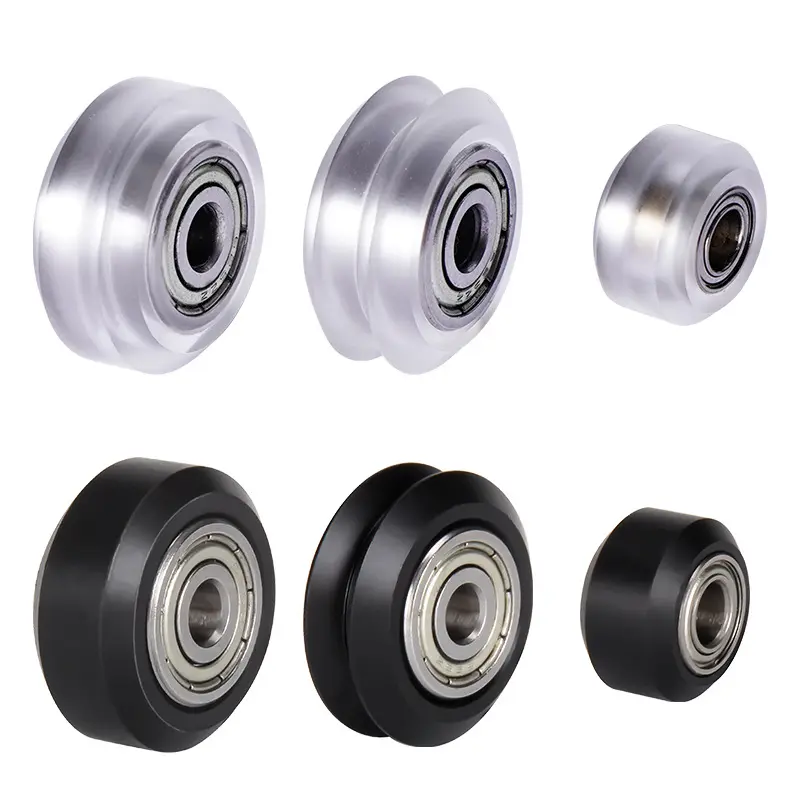
In which industries and applications are fixed pulleys commonly used?
Fixed pulleys find widespread use in various industries and applications due to their simplicity and effectiveness in changing the direction of forces. Here’s a detailed explanation of the industries and applications where fixed pulleys are commonly used:
- Construction: In the construction industry, fixed pulleys are employed for lifting and lowering heavy loads. They are often utilized in conjunction with other pulleys in block and tackle systems to create mechanical advantage and facilitate the movement of construction materials.
- Manufacturing: Fixed pulleys are frequently used in manufacturing processes that involve lifting, tensioning, or guiding loads. They can be found in assembly lines, material handling systems, and conveyor systems, where they contribute to the efficient movement of goods and materials.
- Transportation and Logistics: Within transportation and logistics operations, fixed pulleys play a role in cargo handling and load securing. They are used to change the direction of forces when loading or unloading cargo onto vehicles, ships, or aircraft. Fixed pulleys help facilitate smooth and controlled movement of goods during transportation.
- Agriculture: In the agricultural sector, fixed pulleys are employed in various applications such as hoisting equipment, lifting bales of hay, or moving heavy farm machinery. They assist in managing the weight and movement of agricultural products and equipment.
- Marine and Offshore: Fixed pulleys have applications in marine and offshore industries. They are utilized on ships, oil rigs, and offshore platforms for tasks such as lifting equipment, handling supplies, and deploying or recovering heavy objects from the water.
- Utilities and Power Generation: Fixed pulleys are used in utilities and power generation sectors for tasks like hoisting equipment, lifting heavy components, and facilitating maintenance operations. They contribute to the safe and efficient handling of equipment in power plants, substations, and utility infrastructure.
- Entertainment and Rigging: In the entertainment industry, fixed pulleys are employed in rigging systems for stage productions, concerts, and events. They assist in lifting and suspending equipment, scenery, and lighting fixtures, enabling dynamic and controlled movements during performances.
- Home and DIY: Fixed pulleys can also be found in various home and do-it-yourself (DIY) applications. They are used for tasks such as lifting heavy objects, tensioning ropes or cables, or creating simple mechanical advantage systems for home projects.
These are just a few examples of the industries and applications where fixed pulleys are commonly used. Their versatility, ease of use, and ability to change the direction of forces make them valuable tools in a wide range of sectors.


editor by CX
2024-04-12
